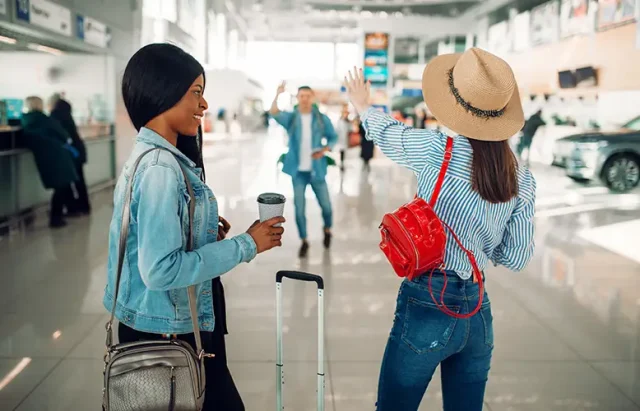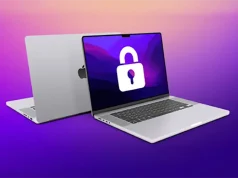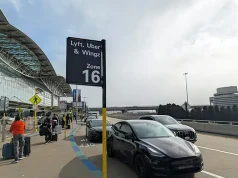
Traveling is fun, rewarding, and educational no matter the destination, activity, or traveling party. Whether you’re looking to try new foods, experience new cultures, or learn rich history, there’s something to love about traveling for everyone. However, navigating through unfamiliar areas far from home can present some safety risks. You can reduce these risks by keeping your belongings secure, paying attention, and doing proper research. Keep these safety tips in mind next time you hit the road.
Research Your Travel Location
Whether you’re going on a day-long road trip or traveling overseas, do some research into where you’ll be visiting. Learn some local laws and customs, especially if you’re visiting a foreign country. Familiarize yourself with the contact procedures and information for authorities or law enforcement. Understanding crime statistics can help you understand what to prepare for and be proactive in your travels.
Secure Important Documents
Long-distance traveling requires you to travel with important documents like passports, boarding passes, photo IDs, and event tickets. Keep these safe with waterproof, secure containers or folders. Keep them close to your person and know where they are at all times. Don’t be afraid to make paper or digital copies of these documents in case of emergencies. Don’t place money, wallets, or important documents in items like backpacks where they can easily be stolen without you noticing.
Keep to Yourself
Learn to avoid drawing unwanted attention to yourself, especially if you’re traveling alone. Showing off large amounts of cash or jewelry may be unsafe in certain situations and locations. Walk confidently with your head held high to avoid looking vulnerable. Don’t appear to be lost, even if you are; be mindful of the areas where you’re looking at maps or asking for directions. Tourists can become victims of theft or kidnapping if they appear vulnerable or lost.
Keep in Contact
Update your friends, family, or partner about your whereabouts. This is especially important if you’re engaging in solo travel. Regular updates will allow those at home to know where you are and what you’re doing in case anything goes wrong. Be certain to use your phone in safe areas so that you’re paying attention to your surroundings.
Secure Your Lodgings
No matter the type of lodging you’re in, be certain it has proper locks. Use all types of locks available to you. Some hotels have a safe, but bringing your own can add security. If a lodging does not have proper locks on the door, it may be best to reconsider sleeping there. Don’t answer the door for strangers without verifying their identity first. Don’t leave important documents or money unattended in a hotel or room.
Pay Attention
Don’t let your guard down in unfamiliar areas; pay attention of your surroundings and strangers around you. Be careful when using your phone, including when taking travel photos, as they can be distracting. If you need to speak to a stranger, consider speaking to an authority figure; be mindful of who you talk to and what information you share.
Vehicle and Pedestrian Safety
Follow all traffic and pedestrian laws in the area. Don’t engage in distracted driving or walking, especially in busy areas. Look everywhere, including in potential blind spots, for other travelers and motorists. Don’t open your car door into a bike lane or sidewalk. If a car or pedestrian accident occurs and you need legal help, you’ll want a lawyer in the area where it happened, not in the area where you live. For example, if you live in Miami but got into a car accident in Chicago, you’ll want to hire car accident lawyers in Chicago.
Be certain to avoid accepting rides from strangers; in situations like ridesharing, verify the license plate number and have the driver share their in-app name before accepting the ride. Keep your phone secure at all times during the ride to report any suspicious activity to authorities and the app safely.
Vacation Responsibly
Vacations are times when we often relax and feel the need to party. However, alcohol consumption can make us vulnerable to criminal activity like theft or assault. Be mindful of alcohol by limiting your drinking, having a trusted sober party member, or drinking in private. Don’t drive when drinking, and avoid walking alone while intoxicated.
What to Do When in Danger
If any criminal activity occurs, alert authorities as soon as you’re safe. Seek medical attention for any injuries. If someone is robbing you, especially with a weapon, don’t try to intimidate the robber; handing over your belongings is much safer than threatening your life. Be certain to inform the robber what you’re doing at all times, and move slowly to avoid accidents or injuries. When there are others around, yelling or screaming for help may save your life.
Conclusion
Traveling is an exciting and rewarding experience, not to mention important for learning other cultures. However, when in unfamiliar places, especially while solo, the risk of danger and criminal activity can increase. Being vigilant and proactive about the risks can help prevent accidents or crimes. Stay safe in your travels!





